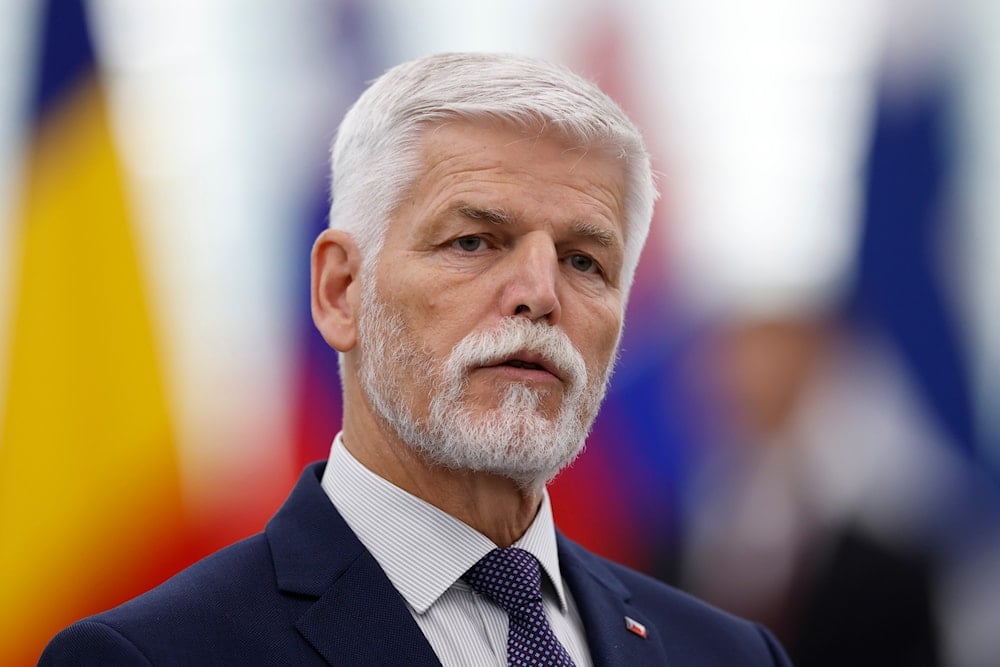NATO prepping for 'high-intensity conflict' with Russia: Czech Rep.
When asked about a potential threat to NATO from Russia, Czech President Petr Pavel urges caution but believes it would take years for Russia to refurbish its military capabilities.
-

Czech Republic's President Petr Pavel delivers a speech at the European Parliament, Wednesday, October 4, 2023 in Strasbourg, eastern France. (AP)
During his speech at a summit of the Visegrad Group, an informal political club that includes the Czech Republic, Poland, Hungary, and Slovakia, Czech President Petr Pavel echoed Central Europe's support of Ukraine, as NATO views Russia as the biggest threat in Europe and is currently preparing for a major conflict, according to Pavel.
Pavel noted that he does not believe his counterparts have a differing view on the war in Ukraine, saying, “We’ve all agreed that it is in our imminent interest that Ukraine succeed,” as he called aiding Ukraine a “naturally human step.”
When asked about a potential threat to NATO from Russia, Pavel urged caution, but argued it would take years for Russia to refurbish its military capabilities.
Read next: Hungary FM warns NATO that Ukraine-bound weapons may end up in Africa
“On the other hand, there are many variables in the calculation that could change the situation. It will really depend on the outcome of the conflict in Ukraine,” he said, noting, “All armies are preparing for the possibility of a high-intensity conflict.”
Differing views, indeed
Hungary has been exhibiting opposing views regarding NATO and Ukrainian aid recently.
Hungarian President Katalin Novakova assured that while her country is ready to give “maximum help” to protect its people, she insisted that Ukraine's accession to the EU is directly linked to its promise to guarantee the rights of the Hungarian minority on its land.
Hungary has been in conflict with Kiev over the rights of an ethnic Hungarian minority residing in western Ukraine. Despite admitting Ukrainian refugees and condemning Russia, Hungary has maintained closer relations with Moscow than most EU countries. It has also argued against supplying arms to Ukraine or providing it with economic assistance.
Previously, Hungarian Prime Minister Viktor Orban expressed skepticism regarding the European Union's plans to begin negotiations for Ukraine's accession to the EU, citing the ongoing war as a major hurdle.
Additionally, during an interview with RIA Novosti last month, Hungarian Foreign Minister Peter Szijjarto announced that his country would veto the 12th sanctions package by the EU if it targets Russian gas, oil, or nuclear energy.
On the other hand, Slovakia's newly-elected Prime Minister, Robert Fico, refused to continue supplying Ukraine with military aid after his campaign slogan “not a single round” to Ukraine. However, the nation has not stopped humanitarian aid.
Read more: 'Not 1 more cent': Americans are done with funding Ukraine's paychecks
Slovakia has been a generous provider of arms - including advanced hardware such as fighter jets and air defenses - to Ukraine since the war broke out. The country also served as a hub for the transport of weapons provided by NATO members to Kiev and a maintenance station for military equipment damaged in the war.

 3 Min Read
3 Min Read









